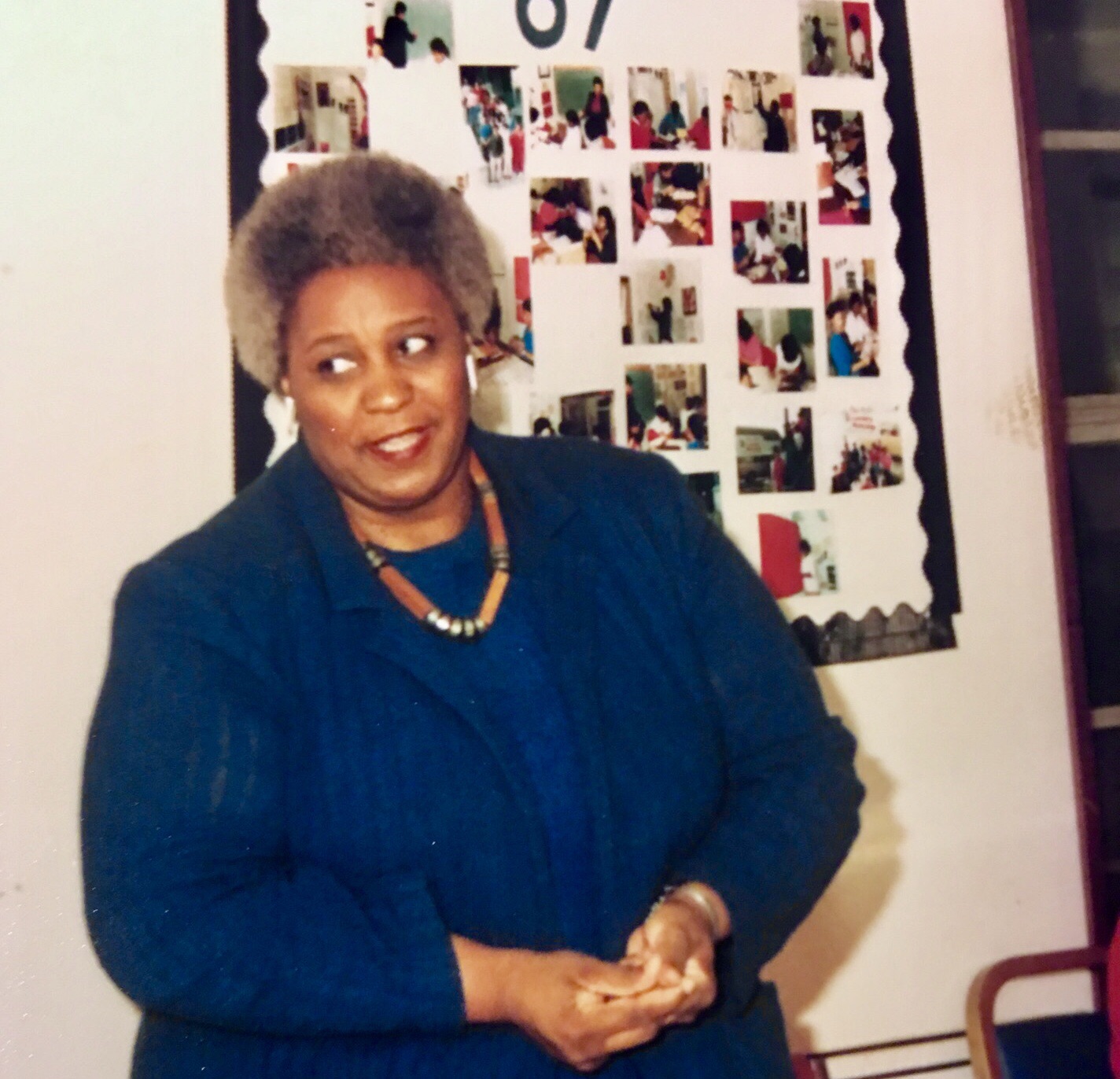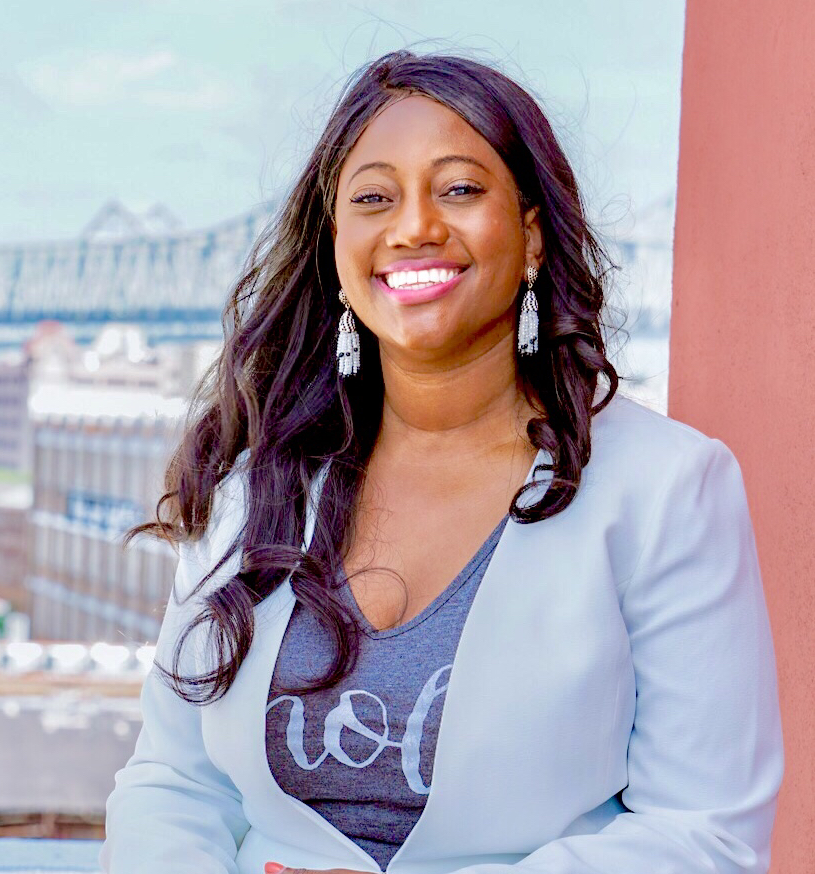Oretha Castle Haley Boulevard is the main artery in Central City, a neighborhood where struggle, resilience and tenacity are palpable.
This stretch of Dryades Street was one of the most diverse and popular districts in the city, once served by five different streetcars, centered around the Dryades Public Market during the mid-1800s to the early 1900s. The area became a cultural epicenter for black musicians who were barred from entertainment venues throughout other parts of the city during segregation. The old signage on the buildings which housed the businesses of black doctors, insurance agencies, a German bakery, a department store and Italian and Jewish merchants still remain on what is now Oretha Castle Haley Boulevard.
It makes sense that Central City’s Main Street, in an area that served as a haven for African American people and was the birthplace of New Orleans’ Civil Rights Movement, would bear the name of one of the city’s Civil Rights pioneers, a woman who never gave up and would never turn over when it came to doing what’s right for others.
Haley was a civil rights activist, who joined protests and sit-ins during the Civil Rights Movement of the 1960s when certain businesses in the bustling Dryades Street corridor would not hire people of color, and her New Orleans home even served as a Freedom Riders headquarters.
For those who know the legacy Haley left behind, they say the abbreviation of the street bearing her namesake feels wrong.
“I get the human propensity and inclination to make things shorter, more palatable, easy to digest. Every one of her names, they all have significance, though,” said Blair Dottin-Haley, Haley’s grandson. “I think it’s important that [people] know what her full name is.”
Preserving her story and continuing her fight is a responsibility Haley’s progeny takes seriously, and that means sharing it with as many people as they can.
“We try to make sure her legacy and the work she did doesn’t get erased,” Blair said.
Growing up, Blair went everywhere with his grandmother, who remained very active in her community and in organizations which worked for the improvement for the lives of African American people. She took him to meetings of the Urban League meetings and of the New Orleans Sickle Cell Anemia Foundation she helped found.
As a young child, Blair only knew of his Mama Retha as “warm and loving and stern,” but as he grew older, he soon learned of her “fearlessness, courage, bravery.”
And it made him who he is today.
“It gave me a courage that I can’t even explain, that swells in me,” Blair said. “It gave me a responsibility to use whatever platform that I am given to speak up, to speak truth to power and to fight for those things that she did.”
It is that spirit that remains in Central City, which is experiencing a transformation right now. Blair says the reason the New Orleans City Council chose the particular 11 blocks of Dryades Street in Central City to bear Haley’s name was because it encompassed the area of Haley’s first office, but also because this neighborhood could use her power there. In the 1980s, at the time the street was renamed, Central City had become “very rough”, with one of the highest murder rates in the city and its people suffering from the fatal crack cocaine epidemic. Now, though the community continues to suffer the effects of poverty, crime and blight, Central City is experiencing a revitalization which remains to be seen whether it will truly benefits its current residents. Blair said.
“As her grandson, what is bittersweet for me… is seeing the area revitalized, but coming at the cost of gentrification happening at the same time. In a lot of ways, it’s antithetical to the people she was trying to help in that, in some ways, it’s hurting the people she was fighting for,” Blair said. “I think it’s a microcosm of what’s happening in New Orleans.”
As Blair, like many other native New Orleanians, sees his hometown metamorphose into something almost unrecognizable, he grows concerned that not only will the traditions and spirit of a place unlike any other disappear, but so will the legacies of those who spent lifetimes fighting for justice— like his grandmother.
“I’m scared for New Orleans… I’m scared for the city. I’m scared for her legacy. I’m grateful and hopeful about the attention she’s getting in the Tricentennial coverage and for new outlets like [Very Local]. I hope that it will prevent the kind of erasure we thought would happen in the new New Orleans.”
Within Blair is his grandmother’s spirit and compassion for the people of the city he loves, and he wonders if his grandmother’s legacy will be preserved as the city becomes almost unrecognizable to him.
“What has made New Orleans one of the most loved places on the planet are the people, the real New Orleanians,” Blair said. “You see this very covert and very overt struggle for the spirit of the city… It’s a fight.”
So, how can we preserve the legacy of a civil rights pioneer who spent her life fighting for the rights of others?
Blair said the answer is that we all must do the same for those among us who are receiving disparate treatment and feeling squeezed out of the only city they may have ever known. It feels, to many natives, that the city seems to be making accommodations for the newcomers to New Orleans that it never made for the natives.
“I think the newcomer (to New Orleans), not only in manner, but in advocacy and politics should fight for those who have been here, for the locked out… They have to demonstrate that they are in that fight and show concern through action.”
“Get in the trenches for the kind of people who have been looking for the kind of deference you got in the door,” Blair said.
There may be no better way to continue the march towards equality and justice that his grandmother and many others like her first began.
“I want people to know that (my grandmother) fearlessly fought and spoke truth to power, regardless of the consequences.”







